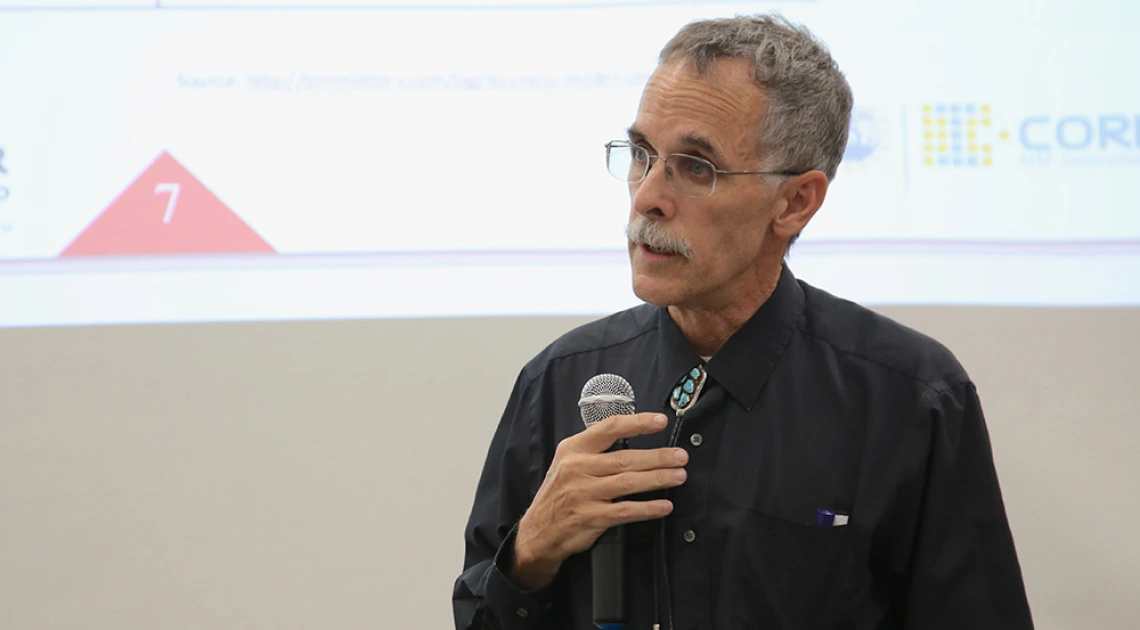University of Arizona Funds Early-stage Inventions for Market Readiness

Tucson, Ariz. – From new cancer drugs to novel remote sensing systems to better batteries, Tech Launch Arizona (TLA) continues to work on behalf of the University of Arizona faculty to commercialize inventions stemming from research. As the office’s teams collaborate with UA inventors to move their ideas out into the marketplace, TLA has a program directed to further develop select inventions to make them more attractive to potential licensees – and thus better prepare them for commercial success.
Between 2013 when TLA began its Asset Development program and July 2016, the office provided almost $2.2 million in funding to prepare 82 early-stage technologies for licensing.
So far in fiscal year 2017, TLA has provided funding for seven projects and expects to fund an additional four or five by the end of June. These efforts may include work such as prototype development, functionality assessment and scalability testing; ultimately, the goal is to better align these early-stage technologies with market opportunities.
According to Joann MacMaster, director of business development for TLA, “Awards are made throughout the year, and we encourage UA inventors to talk with us at any time to discuss their projects and determine if Asset Development funding may be helpful toward commercialization.”
Technologies and teams in this latest cohort (FY 2017) of awardees include:
- Chris Walker, Ph.D., Department of Astronomy and Steward Observatory, the College of Optical Sciences, and the Department of Electrical and Computer Engineering in the College of Engineering, for a terahertz transistor that may replace silicon in superconducting
- Douglas Loy, Ph.D., Department of Materials Science and Engineering, College of Engineering, for a non-toxic, long-lasting sunscreen based on nanoparticles of bridged polysilsesquioxanes
- Vance Nielsen, M.D., Department of Anesthesiology, College of Medicine-Tucson, for a new method to prevent venom-induced coagulopathy
- Heidi Mansour, Ph.D., College of Pharmacy, UA Institute of the Environment and BIO5(link is external); Meredith Hay, Ph.D., Department of Physiology, College of Medicine-Tucson; and Todd Vanderah, Ph.D., Departments of Neurology and Pharmacology, for development of modified peptide cadidates to improve impaired cognitive function
- Anthony Muscat, Ph.D., chair of the Department of Chemical and Environmental Engineering, to scale a novel process for metallic coating and circuit masking using nanoparticles; the team also received a National Science Foundation (NSF) I-Corps grant in 2016
- May Khanna, Ph.D., Rajesh Khanna, Ph.D., Vijay Gokhale(link is external), Ph.D., Department of Pharmacology, College of Pharmacy and BIO5(link is external), for work on novel non-opioid drug compounds; the team also received an NSF I-Corps grant in 2016
- Gerald Lemole, M.D., Department of Surgery, College of Medicine-Tucson, and Marek Romanowski, Ph.D., Departments of Biomedical Engineering and Materials Science and Engineering, and the UA Cancer Center, to develop a solid state camera system and lens for real-time monitoring of cranial nerve pathways on anesthetized patients
“The Asset Development program provides necessary funding needed to bring inventions closer to market, but that’s just one part of the overall process,” says MacMaster. “The TLA team works closely with researchers to define and develop an appropriate work plan and to engage industry expertise where needed.”
TLA brings together Asset Development funding, team support and industry experts together to help identify pathways for success and fast-track research commercialization efforts.
Last year, UA inventions that benefited from Asset Development funds included a beating heart patch, a nanopillar electrode for lithium-ion batteries, an underwater adhesive, a new breed of Veress needle for laparoscopic surgery, and a topical skin product to aid in the production of melanin without exposure to UV radiation.
Since its start in 2013 through June 2016, the program has funded 80 projects. Fifty-one of those have been completed so far, and of those, 30 percent have been licensed. For every $1 dollar of Asset Development funds TLA invested, the inventors and entrepreneurs involved have secured an additional $3.60 dollars in follow-on grants and funding to advance their projects.
“The TLA Asset Development program is one of the largest operated by a university commercialization unit in the nation”, according to David Allen, Ph.D., vice president of TLA. He added, “We are proud of how we have integrated this program into our broader commercialization services offering and how we are now operating at a scale that will produce greater impact”.
Those interested in learning more about Asset Development funding should contact Joann MacMaster or a TLA licensing manager.
TLA provided its last Asset Development program update in May of 2016.
While Asset Development funding is only for inventions representing UA intellectual property, TLA also offers funding through the National Science Foundation Innovation Corps (NSF I-Corps) program. The NSF I-Corps program is an initiative designed to prepare scientists and engineers to expand their focus beyond the laboratory and increase the impact of basic research. The program is designed to accelerate the commercialization of new technologies, nurture students and/or faculty, encourage collaboration, and help teams determine customer and market opportunity for possible startup consideration. TLA was awarded the NSF I-Corps Site designation in January of 2016. Awards are up to $3,000 per team and qualifies the team to receive future NSF funding. For more on the NSF I-Corps program and to apply for the next UA cohort, visit: http://techlaunch.arizona.edu/nsf-i-corps-about.

